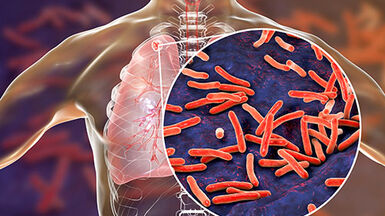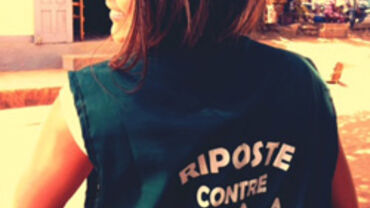Typhoon Haiyan: EPIET and EUPHEM support to the Philippines
Typhoon Haiyan hit central Philippines on 8 November 2013, leaving behind a path of devastation. In total, typhoon Haiyan affected over 16 million people, displacing over 4 million and killing more than 6.000. Between October 2013 and March 2014, eleven EPIET and EUPHEM fellows and alumni provided support to the country, both in typhoon and in conflict-affected areas.
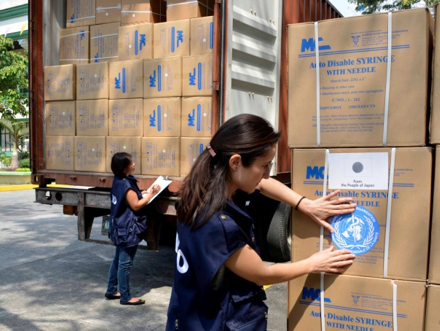
Typhoon Haiyan hit central Philippines on 8 November 2013, leaving behind a path of devastation. A large storm surge also hit Tacloban, a city of over 200.000 inhabitants in the Leyte province, washing away entire communities. In total, typhoon Haiyan affected over 16 million people, displacing over 4 million and killing more than 6.000. Earlier that year, in September, civil unrest in the south of the Philippines (Zamboanga City) had resulted in more than 120.000 internally displaced persons.
Crowded living conditions, long-term displacement in evacuation centers, lack of access to clean water and sanitation, and low vaccination coverage posed severe health risks to the typhoon and conflict-affected communities. These conditions increased the risk for outbreaks of diarrheal diseases, including measles, leptospirosis, dengue, and chikungunya.
Between October 2013 and March 2014, eleven EPIET and EUPHEM fellows and alumni provided support to the country, both in typhoon and in conflict-affected areas.
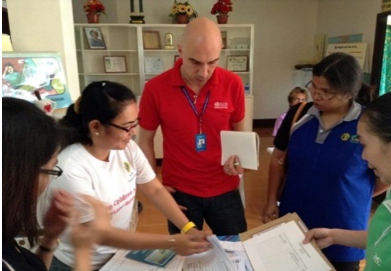
They conducted rapid assessments, participated in surveillance activities, provided technical expertise, advised on identifying priority public health needs, and ensured that those were addressed.
Specific tasks included:
- Implementation, enhancement and evaluation of early warning systems, data analysis and reporting;
- Implementation of laboratory surveillance of diarrhoeal diseases in evacuation centres;
- Provision of technical guidance on event based surveillance for communicable diseases;
- Advice on public health education;
- Provision of technical leadership and guidance on outbreak investigations, morbidity and mortality monitoring, and drinking water quality surveillance;
- Liaison with local, national and international partners to generate a multi-sectoral response.
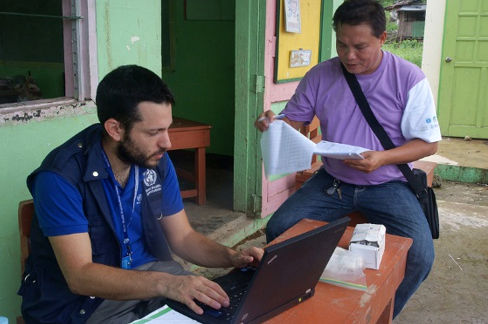
The Philippine Department of Health recognised the work of the EPIET and EUPHEM fellows and graduates and awarded them certificates acknowledging their contribution. The deployment in the Philippines illustrates how EPIET and EUPHEM can deliver public health service while in training, including in challenging international settings.
Fellows deployed:
- Michael Edelstein (EPIET 2012)
- Coralie Giese (EPIET 2013)
- Maria Saavedra Campos (EPIET associated programme, UK FETP, 2012)
- Emily MacDonald (EPIET 2012)
- Vanessa Cozza (EPIET 2012)
- Antons Mozalevskis (EPIET 2012)
Alumni deployed:
- Maria Dolores Fernandez (EUPHEM 2011)
- Siri Hauge (EPIET associated programme, Norway FETP 2007)
- Bernardo Guzman Herrador (EPIET 2011)
- Karl Schenkel (EPIET associated programme, German FETP 2004)
- Anneke Steens (EPIET 2011)

